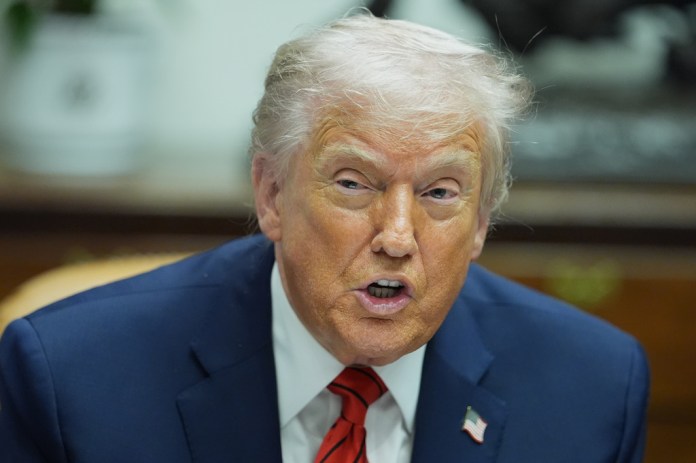FBI and privacy hawks clash over encryption after Trump assassination attempt – Washington Examiner
The article discusses a recent confrontation between the FBI and privacy advocates over digital encryption, spurred by an assassination attempt on former President Donald Trump. During a hearing, FBI Director Christopher Wray stated that while the Bureau could access some information from the assassin’s devices, encryption impeded full access to communications, particularly on platforms like Signal and WhatsApp. This has alarmed privacy advocates, who argue that encryption is essential for protecting personal information from government surveillance.
Following Wray’s comments, privacy activists convened to explore strategies for safeguarding digital data and voiced concerns that the FBI seeks to undermine encryption through potential “backdoors.” The article references past conflicts, including the FBI’s battle with Apple regarding an iPhone related to the San Bernardino shooting, highlighting ongoing tensions between law enforcement interests and privacy rights. Advocates warn that the FBI’s push for easier access to encrypted communications presents significant risks to digital security and personal privacy.
The article discusses a recent clash between the FBI and privacy advocates regarding digital encryption following an assassination attempt on former President Donald Trump. FBI Director Christopher Wray revealed that while the bureau was able to access some information from the assassin’s devices, encryption presented significant barriers to full access. This situation has prompted privacy activists to strategize on how to protect digital information from government surveillance. Wray expressed concerns over encrypted messaging services like Signal and WhatsApp, which prevent law enforcement from accessing communications, labeling this as a “significant technical challenge.”
During a virtual meeting organized by Demand Progress, advocates emphasized the importance of encryption in safeguarding personal and sensitive information. They highlighted the FBI’s history of undermining encryption and warned against government efforts to introduce “backdoors” for surveillance purposes. The article further references past incidents, such as the FBI’s battle with Apple for accessing an iPhone related to a shooting in San Bernardino, demonstrating the ongoing tension between privacy rights and law enforcement interests in accessing encrypted data.
FBI and privacy hawks clash over encryption after Trump assassination attempt
FBI Director Christopher Wray revealed at a recent hearing that while the bureau had accessed some content from the digital devices of former President Donald Trump’s would-be assassin, it could not see everything.
One day later, a group of privacy activists huddled together to plot out ways to better protect digital information from the FBI and other entities.
“The FBI complains about going dark. When you look at the statistics on how often they intercept communications, this is the golden age of surveillance,” Greg Nojeim, a lawyer at the Center for Democracy and Technology, said during the virtual meeting on Thursday.
The meeting, hosted by Demand Progress, centered on encryption, which Nojeim described as “crucial to protecting information” in a world where everything, from personal messages and work communications to financial and health records, is online.
Wray had lamented at the hearing the obstacle presented by encrypted platforms, such as Signal, WhatsApp, or Proton Mail, which lock communications so that only the sender and recipient can see them.
Wray said the FBI had finally gained access to Thomas Matthew Crooks’s phone as the bureau continues searching for the motive of the 20-year-old who killed one, critically injured two, and injured Trump at a recent rally in Pennsylvania.
Wray said, however, that accessing the phone presented a “significant technical challenge” in itself “from an encryption perspective” and that encrypted messaging applications on Crooks’s phone were also a problem for the FBI.
The FBI may never be able to access some of Crooks’s content “no matter how good our legal process is,” Wray said.
“In terms of our ability to access it, we have been able to get into and exploit a number of electronic devices, digital devices but not all of them yet, and then within his various accounts, we’ve been able to get access to some of them, but some of them we’re still waiting on. Some of them we may never get access to because of the encryption issue that presents an increasingly vexing barrier for law enforcement,” Wray said.
FBI Deputy Director Paul Abbate told lawmakers in a briefing one week before the hearing that the FBI had initiated a “legal process,” such as issuing subpoenas, with 30 companies and had been waiting on responses from 18 companies, including encrypted platforms, in reference to the Crooks investigation, according to a source familiar with the briefing.
Hajar Hammado, a senior policy adviser at Demand Progress, said in a statement the FBI has a record of attempting to break through encrypted platforms.
“Given the FBI’s long history of working to undermine end-to-end encryption, it’s very likely they will ask the next president to help them do it, and we can already see Director Wray laying that groundwork,” Hammado told the Washington Examiner.
Hammado stated that “people who care about defending digital security and privacy need to be vigilant and proactive in challenging the false narratives the FBI is once again trying to plant.”
Former Virginia Republican Rep. Bob Goodlatte, who participated in the virtual privacy meeting, harkened back to the encryption controversy surrounding the shooting in San Bernadino, California, in 2015 that left 14 dead.
The FBI obtained a court order for Apple to unlock an iPhone belonging to one of the two shooters, and while Apple CEO Tim Cook fought the order in court, the FBI eventually found a third party to unlock the phone and dropped its legal pursuit against Apple.
The Washington Post reported that the third party was a small Australian hacking firm called Azimuth Security. In Crooks’s case, the outlet reported, the FBI broke into the gunman’s phone using software from Cellebrite, an Israeli firm federal investigators have increasingly turned to for cracking phone codes.
Noah Chauvin, a law professor at Widener University, said during the meeting with the privacy advocates, however, that he had observed “sustained efforts” from law enforcement to go directly to encryption platforms and pressure them to put “backdoors into their products that would allow the government to go in and review the messages that are being sent.”
Using third parties like Cellebrite is legal for the FBI to do, but federal statutes discourage law enforcement entities from pressuring companies that provide encryption services to directly help them access secure communications.
Goodlatte, who became a privacy lobbyist after leaving Congress, said he understood the FBI’s frustration with encryption but warned that efforts to access secured messages through backdoors, if successful, would present “security vulnerabilities” that could create hacking opportunities for foreign adversaries or international criminal organizations.
The group of privacy hawks discussed legislation they would urge Congress to pass, including an amendment introduced by Rep. Warren Davidson (R-OH) that would prohibit any FBI funding that went toward undermining encryption.
Davidson introduced the amendment as part of a congressional appropriations bill, which Republican leaders postponed addressing until after their August recess.
The annual summer break on Capitol Hill and the funding bill delays mean that while evergreen friction on encryption exists between privacy hawks and the government, it will likely be months or longer before any legislative fights on the issue come to a head.
" Conservative News Daily does not always share or support the views and opinions expressed here; they are just those of the writer."




